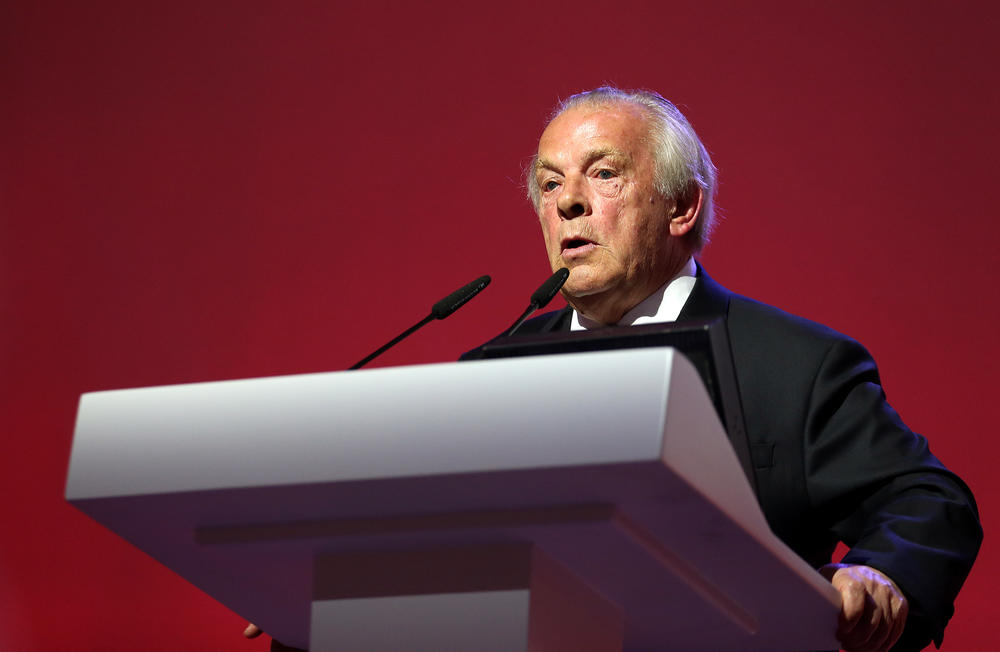Gordon Taylor in profile

Gordon Taylor will end his reign as the world’s longest-serving trade union leader when he steps down as chief executive of the Professional Footballers’ Association after the completion of an independent review.
Taylor, 74, appointed to the role in 1981 and also reported to be the highest paid union official in the world, is coming towards the end of his tenure.
Taylor had come under increasing pressure in recent months following criticism led by PFA chairman Ben Purkiss and former players.
But the former Bolton, Birmingham and Blackburn winger’s 38 years in the role have not all been shrouded in controversy.
Taylor has dedicated much of his life to serving the interests of professional footballers, who have plenty to thank him for.
He can list some considerable achievements, while his detractors will argue his influence has waned since the modern-day game, fuelled by recent multi-billion pound television deals, has rocketed into a new era.
Taylor undoubtedly raised the profile of the union. He moved their Manchester-based office to a new headquarters, where staff numbers swelled from a handful to over 100, and was largely responsible for professionalising player welfare.
The best features, fun and footballing quizzes, straight to your inbox every week.
An eloquent speaker and shrewd negotiator, Taylor took special pride in championing the cause of lower league players and the grassroots game and kept the well-being of all professional players at the heart of any football debate.
He campaigned for, and delivered, a new standard contract for all players, better accident insurance, increased pensions and a system of grants which enabled players to study for a career after football while they were still playing the game.
During the 1980s, Taylor was instrumental in the implementation of the Youth Training Scheme (YTS) into professional football and has overseen its evolution into the current Apprenticeship in Sporting Excellence Programme (ASE).
Football in the Community was another Taylor initiative, while he ensured the PFA remains a major funder of both Show Racism the Red Card and Kick It Out. He was inducted into the Show Racism the Red Card’s Hall of Fame in 2004.
Taylor has regularly taken on the role of trouble-shooter in many of football’s major disputes – breakaway leagues, television revenue and restructuring – and was for years portrayed as a beacon for commonsense.
But since the advent of the Premier League and burgeoning television revenue, Taylor increasingly found himself at odds with the game’s elite and in recent years critics have taken him to task over his reported £2.29million salary.
Taylor was born in Ashton-under-Lyne in 1944 and his father, a British Rail fitter, was a staunch union man.
A career in professional football beckoned after Taylor had represented Lancashire Schoolboys and had a trial for England Schoolboys.
He turned down interest from Manchester United and Arsenal among others to join Bolton, who his father supported, in 1960.
Taylor enjoyed a 17-year playing career, which included spells at Bolton, Birmingham, Blackburn, Vancouver Whitecaps and Bury, but always planned for life after football and never turned his back on his education.
In his early years at Bolton he completed his A-Levels and then an external degree in economics at what is now Manchester Metropolitan University.
He took an interest in players’ rights and terms of employment during his spell as a player at Bolton, where he became club delegate, and was appointed to the PFA’s management committee in 1972 while at Birmingham.
Taylor succeeded Derek Dougan as PFA chairman in 1978. By then his playing career was drawing to an end at Bury and he joined the union full-time after he had hung up his boots in 1980.
He was appointed PFA secretary/chief executive in 1981 following Cliff Lloyd’s resignation.
In 1994 Taylor was appointed president of the International Association of Football Players’ Unions (FIFPro). He held the position until 2005 but remains an honorary president.
Taylor was made an OBE in 2008 for his services to football and in 2011 received the Lifetime Contribution to North West Football award and the Contribution to League Football Award.
FourFourTwo was launched in 1994 on the back of a World Cup that England hadn’t even qualified for. It was an act of madness… but it somehow worked out. Our mission is to offer our intelligent, international audience access to the game’s biggest names, insightful analysis... and a bit of a giggle. We unashamedly love this game and we hope that our coverage reflects that.
 Join The Club
Join The Club






